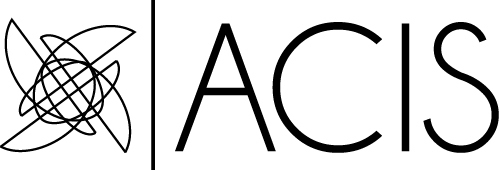
We came, we saw, it snowed, and the University of Notre Dame put together a rich and rewarding program of papers and entertainments. Only the snow was unexpected.
People come to the annual meeting of the American Conference for Irish Studies with their own investments and particular streams of papers and panels picked out in advance, perhaps pre-ordained by their own specialisms. I came to Notre Dame as an eighteenth-centuryist who was invited to contribute to a series of panels on “The Worlding of Irish Studies,” the conference’s organizing theme. In terms of pre-1800 Irish studies, this conference was mightily impressive: David Dwan’s literary plenary in particular was an absorbing critique of the limits of enlightenment liberalism in an Irish context. It was also a privilege for this correspondent to contribute to a panel featuring Ian Newman of Notre Dame and Norma Clarke of Kingston University London, particularly as the latter’s exquisite book on Oliver Goldsmith has recently been released by Harvard University Press. On an earlier panel, Patrick Tuite and Helen Burke delivered stimulating papers on late-seventeenth and late-eighteenth-century drama respectively. Tuite’s lecture gave an account of the mechanics of maritime travel and its thematic inflections in Dublin theater, while Burke spoke of John O’Keeffe, the eccentric and critically neglected Irish Catholic comic playwright who wrote so prolifically for the Haymarket and Covent Garden theaters in London in the late-Georgian period. I came way from both “long eighteenth century” panels intellectually enriched and enthused.
On a separate point, it must be said, I also came away with a sober awareness of the challenges facing Irish studies. The sequence of roundtables on “The Worlding of Irish Studies” was very much to the moment as the inter-discipline takes stock of its own position in the international academic community. This strand of thought worked through the plausible remit of, and the many issues and problems which beset, Irish studies. How does an Irish studies program define itself—for itself and in relation to other Irish studies programs? How does it conceptualize itself in terms of constituent disciplinary strands and in terms of the relationship between Irish studies and the wider world?
The contributions were stimulating and thought-provoking: Diarmuid Ó Giolláin spoke of the need to de-provincialize (or de-Anglicize) Irish Studies and to broaden its comparative dimensions. Laura Izarra proposed Roger Casement as a test case in the “worlding” of Irish Studies (it was a happy coincidence that Breac’s special issue on Casement’s life and legacy was launched during the conference); John McCourt gave an Italian perspective on the fragility of Irish studies in continental Europe. Dominic Bryan spoke from his experiences at Queen’s University Belfast to assess the disciplinary make-up of Irish studies more broadly and potential issues with student recruitment in Irish Studies within Ireland.
Irish studies, as a living stream of intellectual activity across subjects, is alive and well, but Irish Studies as an interdisciplinary program is perhaps becoming a harder sell. A properly critical Irish studies is possible and desirable, but there was a prevailing sense that Irish studies might have to concede, to a certain extent, to canonical expectations in order to sustain its more stringent critical endeavours. More on that point, no doubt, at ACIS 2017 in Kansas City.
